Attending an impromptu birthday party in the office is not the most heinous of crimes, and of course Britain’s fixation on Downing Street’s breaches of lockdown rules looks rather perverse against the crimes being committed by Vladimir Putin’s troops in Ukraine. But there is little point in the Prime Minister or any member of his government attempting to argue that point.
It is very clear that there is considerable anger among the British public that a government which imposed highly prescriptive Covid rules failed to live by the letter of those rules itself. Whatever excuses Boris Johnson, Rishi Sunak or anyone else attempts to make, they will not be compared to current events in Ukraine but to the sacrifices made by millions of Britons between March 2020 and the final abolition of those restrictions in February this year. Whenever a defence is raised, it will be countered by the voice of someone who lost a family member during the pandemic and who was forbidden even to say goodbye to them.
The Prime Minister belatedly appears to realise this, and has given up his attempt to persuade the country that no wrongdoing took place, or that if it did he wasn’t involved. But his position remains bleak. The police investigation is ongoing and it is entirely possible that further fines could come his way. There is also the equally serious question of whether he knowingly misled the House of Commons on several occasions when the story of illicit Downing Street parties first broke. Keir Starmer, ever the lawyer, has asserted that Johnson has become the first serving Prime Minister to have been penalised for breaking the law, and that that alone should justify his resignation. Whether you accept Starmer’s case or not, knowingly misleading the House of Commons certainly is a resigning offence, and there will be plenty of analysis of the Prime Minister’s Commons statements in the coming days.
It is perhaps only down to the timing of the Whitehall and police investigations that Johnson has been able to survive thus far. The sting was taken out of Sue Gray’s report by the Metropolitan Police’s investigation, and then the war in Ukraine distracted attention from the whole business. The Scottish Conservatives’ leader, Douglas Ross, was one of the loudest voices demanding Johnson’s resignation in January, yet later withdrew his letter to the chairman of the 1922 Committee demanding a vote of no confidence. At least one MP, Nigel Mills, has written such a letter this week, but momentum has been lost.
All the same, renewed pressure will be piled on the Prime Minister if just one minister resigns in the wake of a lockdown fine. That is why all eyes in recent days have been on Sunak, who already had his own problems this week as a result of his wife’s non-dom tax status. Were he to walk away from No. 11 it would be all but impossible for his neighbour to stay.
The case for Johnson to remain in his job has become focused on his role in the defence of Ukraine. It is certainly true that Johnson has had a good war, seeing earlier than other European leaders that while no Nato country could risk a direct conflict with a nuclear-armed Russia, the possibility of arming Ukraine was still an option. Thanks to Britain’s swift reaction, Ukrainian President Volodymyr Zelensky has made it clear that he regards Johnson as one of his closest allies.
That said, anyone who argues you cannot change a Prime Minister in times of crisis or war is ignoring obvious precedents: Neville Chamberlain was removed from office in 1940 and Margaret Thatcher deposed on the eve of the first Gulf War. Many in the outside world may have been surprised by the timing of the challenge on Mrs Thatcher, but that didn’t stop Michael Heseltine or the Conservative MPs who supported his challenge.
If Johnson is to survive as PM he will have to do more than pose as a war leader. He will have to make a convincing case to Conservative MPs as to why he should continue to have the top job when the attribute which won him the position – his popularity in the country as a whole – is no longer there. Also absent is any discernible domestic reform agenda. What we do see is a broken manifesto promise not to raise tax. The Prime Minister will need to do far more than batting away demands for his resignation over breaches in lockdown rules.
Above all, he is going to have to find a way to address the other great wave that is breaking over the Tories’ bows: the cost-of-living crisis. The news on this front became even grimmer this week with inflation rising by 7 per cent – a level not seen since the early 1990s – and pay rises are failing to keep up. Unemployment remains low (with a record 1.3 million vacancies) and the economy is generally stronger than it was 30 years ago. But for far too many people, even those in apparently good jobs, everyday life has become an endless struggle to pay the bills. There is nothing more dangerous to the Conservatives than the death of aspiration. When hard-working people start to curse the economic system in which they find themselves, the Tories are sunk.
Somehow, the Prime Minister is going to have to find a way to put this right; to generate an atmosphere in which work pays, in which ordinary people can reasonably aspire to own a home, a car and other luxuries – and not by winning the lottery. So far, he appears to have few ideas. This is the real threat to his position: that he has a massive majority but not much idea of what to do with it and that whatever action he is taking pushes Britain to a high-tax, high-debt, high-spending future that many people voted Tory to avoid. If he is forced out, it will be for this reason.
Got something to add? Join the discussion and comment below.
Get 10 issues for just $10
Subscribe to The Spectator Australia today for the next 10 magazine issues, plus full online access, for just $10.
You might disagree with half of it, but you’ll enjoy reading all of it. Try your first month for free, then just $2 a week for the remainder of your first year.

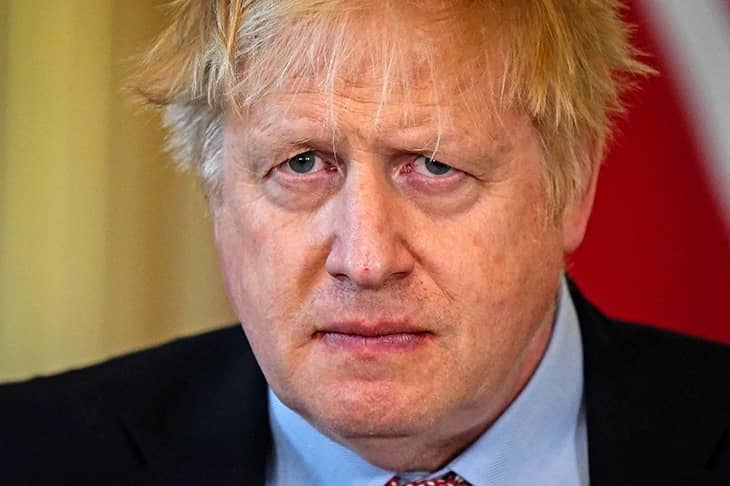
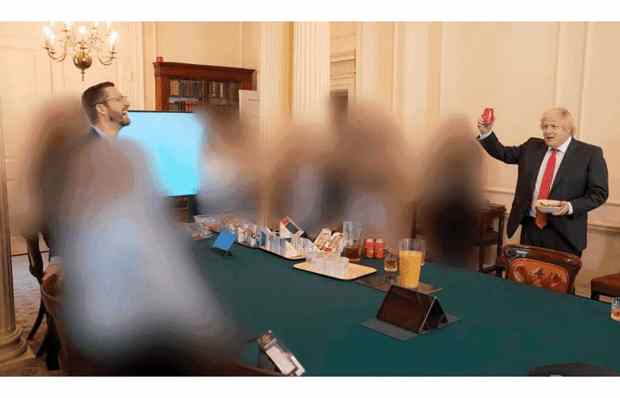

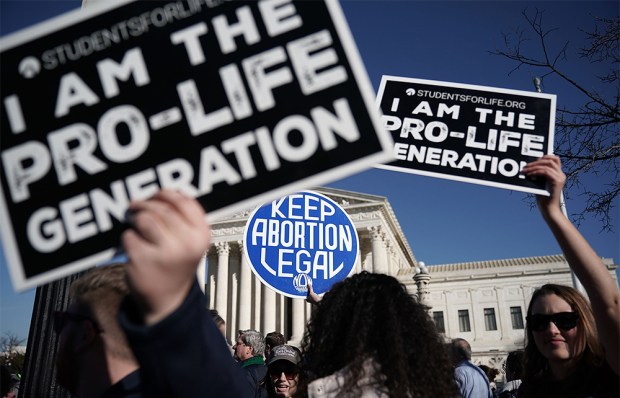
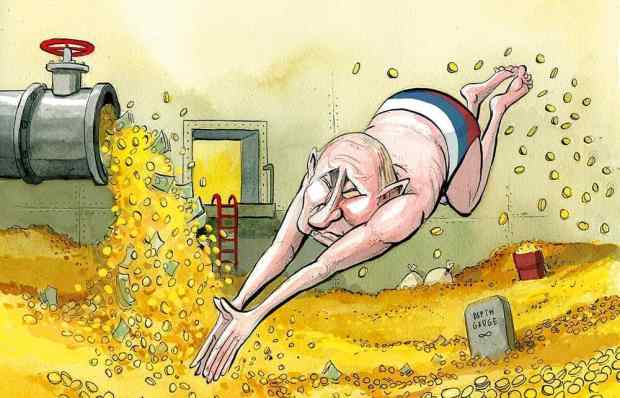
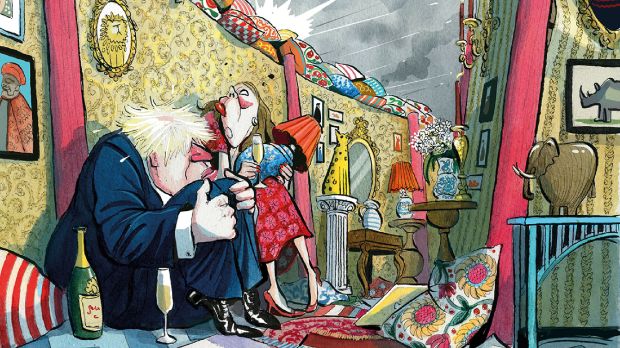
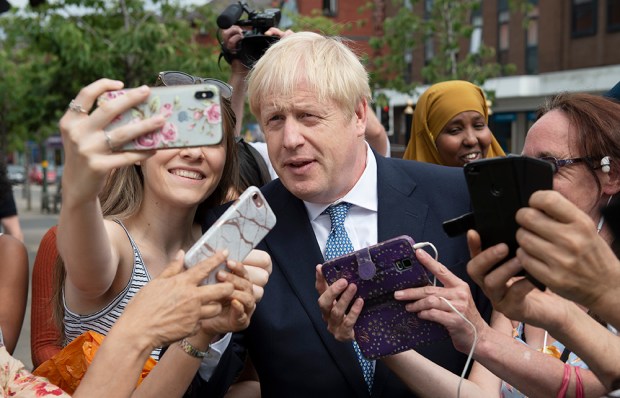






Comments
Don't miss out
Join the conversation with other Spectator Australia readers. Subscribe to leave a comment.
SUBSCRIBEAlready a subscriber? Log in